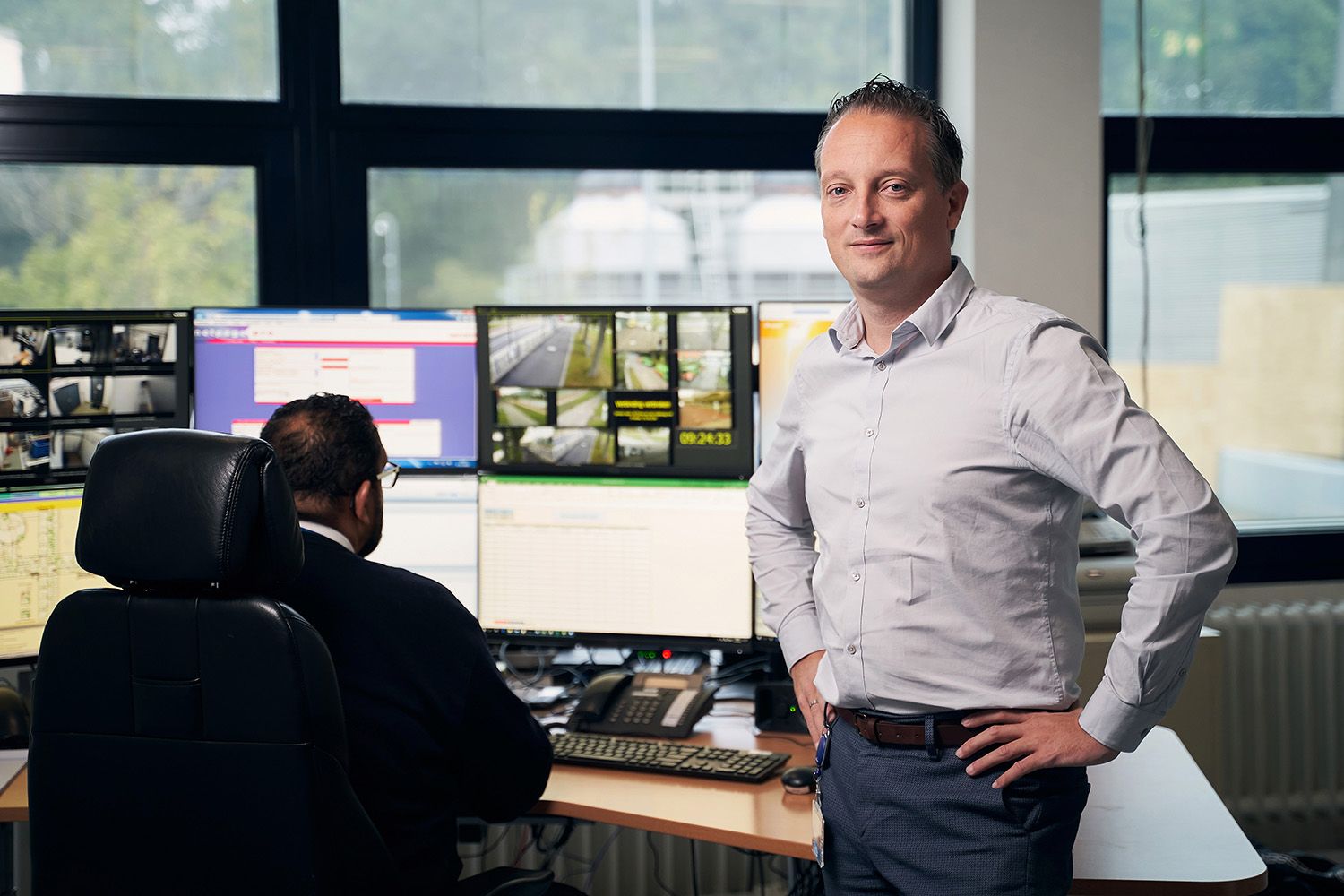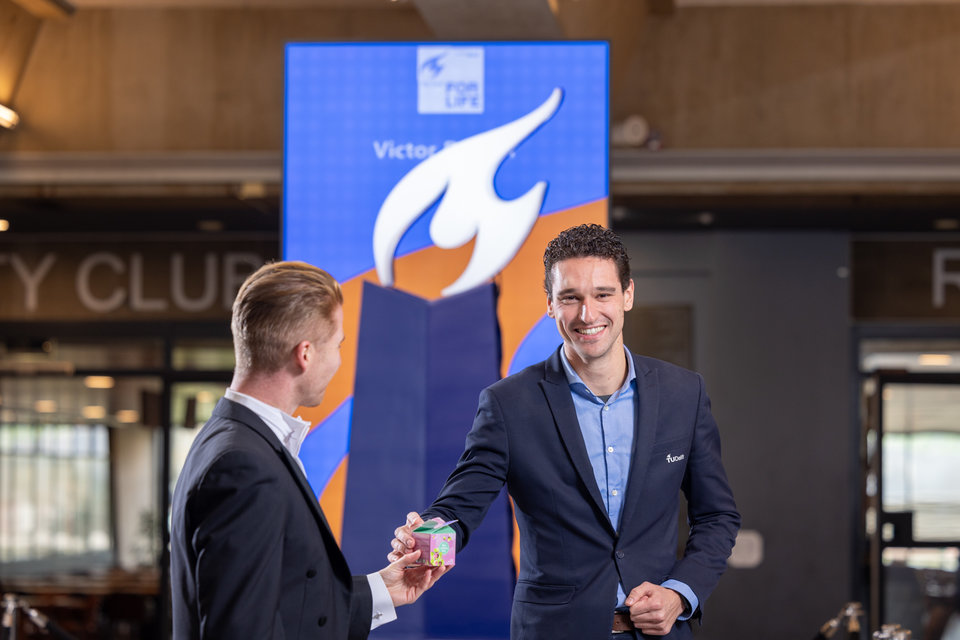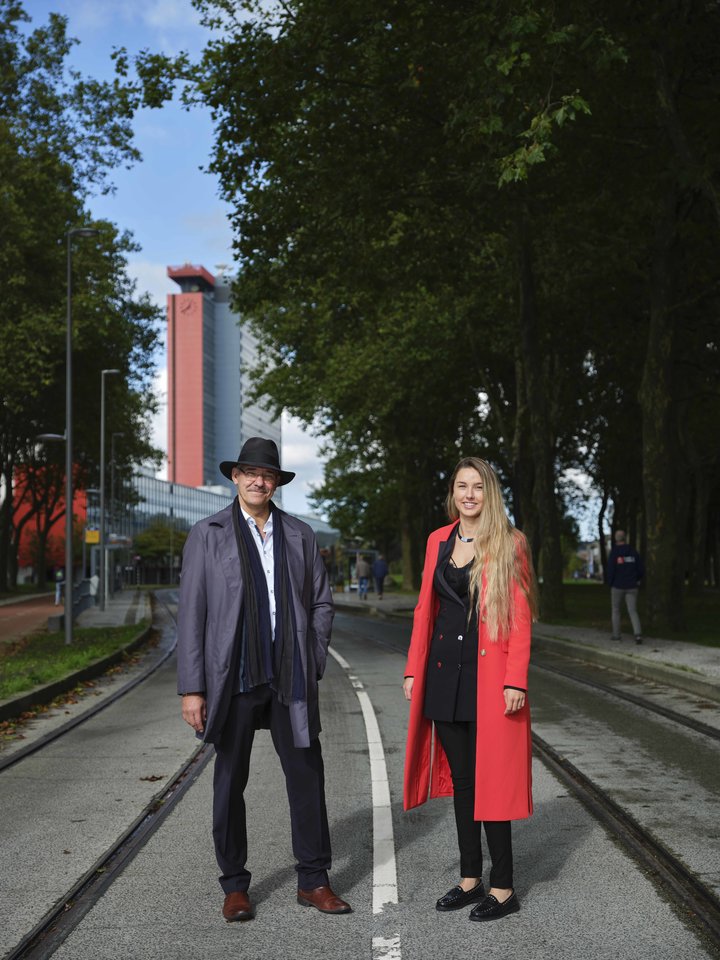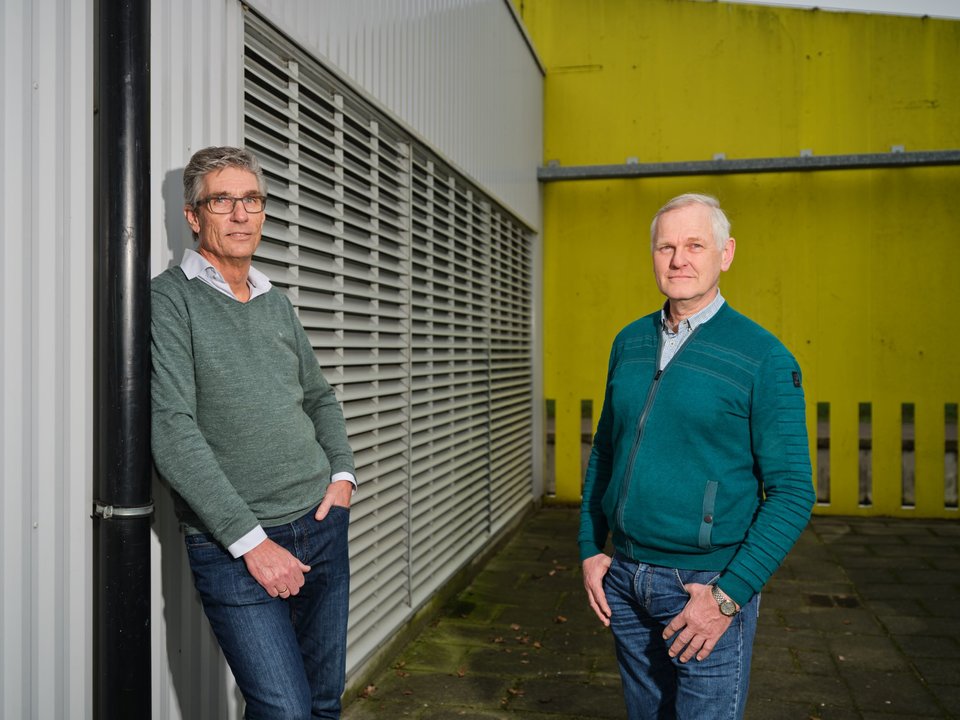We are well looked after: a total of 60 security officers from the security company walk, cycle and drive around the campus on their rounds and check all the buildings when they open and when they close. Two operators are in the TU Delft control room 24 hours a day to take your call should anything happen. And in the critical initial minutes before the emergency services arrive, members of the BHV emergency response team are the first on the scene. “The BHV team members are vital. They provide first aid, help evacuate buildings if required, and relay information to the emergency services,” explains Sebastiaan Star. “They’re also aware of specific hazards on campus, where specific dangerous substances are used, for example. Members of the fire brigade arriving on the scene do not have this information, so until one of their specialists arrives, the BHV team members fulfil this role. They do a great job, and help to prevent potentially dangerous situations.”
Contracts are not arranged just like that
“Safety in a complex is just one of the responsibilities of the complex manager. Following the recommendations made by a Health, Safety & Environment Adviser, the complex manager implements various measures to cover the risks. The BHV in-house emergency response organisation is essentially one such measure,” Star points out. Together with his department, he arranges for the BHV organisation to have the correct equipment, such as walkie-talkies, evacuation chairs and AEDs, and that everyone is properly trained. Recently, there was a danger this training would not be up to standard. “We had signed a covenant with the local Haaglanden Safety Region for them to train and drill BHV team members. But Haaglanden decided that this was no longer part of their core business; moving forward, they wanted to leave this to market parties,” he continues. “The problem is, you cannot arrange things just like that, as there is a tender process. A contract with a new training company began on 1 August, but until then, we had to make our own arrangements.”
'The BHV team members are vital.
They provide first aid,
help evacuate buildings if required,
and relay information to the emergency services.'
Motivation is essential
"There were loads of problems through that period, and things went wrong. In terms of organisation, I mean, because the BHV teams always dealt with incidents properly. But if people do not have the resources and training they need to do their job properly, they get demotivated.” And motivation is especially important for BHV team members, as most of what they do is for the love of the job. They do receive a small allowance for their work, but as Star knows, that is not what motivates most of them. “There are lots of different reasons why people get involved; because they want to help others, or because the BHV diploma is useful to have at their children's sports club.”
Star himself is no stranger to helping others. Alongside his four days a week work at TU Delft, he heads a team of volunteer fire fighters for the Rotterdam Rijnmond Safety Region. “I’m the commanding officer during the hot phase (the incident phase). In the cold phase (before and after an incident), I arrange the rest: preparing for incidents, equipment, training, financial administration, etc. It has a lot in common with the BHV emergency response organisation.
Multi-building’ incidents on the rise
Star has also turned his attention to the duties and responsibilities within the BHV organisation as part of the Service Quality programme. "Who do you need to contact for what, during the cold and the hot phase, and who is the contact in each building? We’ve got that all worked out on paper. It is now time to practise, so that everyone in the organisation is up to date,” says Star. This is an issue requiring constant attention in an ever-changing organisation. Consider a building like Pulse, for example, which is sandwiched between IDE and ME. If there is a fire or other incident in the building that you have to upgrade, the other complexes also become involved. Who is in charge of operations once this happens? These kinds of ‘multi-building’ incidents are occurring more often, and the increase is set to continue.”
Close collaboration with Safety and Security
When it comes to strategy, the responsibilities are clearly defined and shouldered by the Safety and Security Department, headed by Ron Massink. Star works closely with the department. “However, there are also a whole range of operational and tactical considerations,” he says. In his role as Trailblazer, he is now responsible for operational safety, focusing on the BHV organisation, the security company and the control room. “I also keep in touch with operational services outside the campus, such as the police and fire brigade’.
Around 35,000 people are on the TU Delft campus every day, so it could be compared to a town like Castricum or Coevorden. “And we have to deal with the same problems as they do: fire, flooding, burglary, people acting irrationally, you name it,” notes Star. “For example, trams will soon be running across the campus; how will that affect traffic safety? Experience has taught us that extending tram lines from a city to the outskirts can be problematic, so we are already looking into this.”
People should feel safe here
Star believes that the corporate world has quite a bit more to teach us when it comes to safety culture. “At an organisation like Shell, you are not even allowed on site before you have watched a safety film and passed a test on what you have learned. Safety culture is an integral part of company operations.” That is not always the case on campus. “Students and researchers appear to be somewhat less aware of the risks in a lab, while we're working with the same dangerous substances as in the industrial sector. How do you deal with this, and are you using the correct personal protective equipment? Improvements can be made in this regard.”
This is a challenge that he, and everyone else involved, face with confidence. “We ultimately all want the same thing: a clean, safe campus that's nor run-down. If something is broken or dangerous, you should be able to report it, so that the problem is fixed. People should feel safe here.”
OZON Cyber Crisis Exercise
Emergency drills are not only important for the fire service and the in-house emergency response organisation, but also for IT. In October 2018, TU Delft participated in the OZON Cyber Crisis Exercise, a cyber-security drill organised by SURF involving 50 higher education institutions and a total of 1,200 people, 60 of them from TU Delft. Sebastiaan Star, at the time IT Applications Manager, coordinated the exercise. In the scenario, the university is the victim of a ransomware attack. “There were three levels to the exercise. The first victim was a secretariat that was no longer able to access MT agenda documents. Then there was a second victim, a lecturer who was unable to access the handouts for his afternoon lecture. A third victim was a researcher with a pressing deadline to submit an application for a subsidy worth millions,” explains Star. “What we hope is that someone at the Service Desk draws the connection between the secretary and the lecturer who are both unable to access files, and thinks: what’s going on? They can then scale the issue up in the IT organisation, which then puts together a crisis team.”
Prior to this scenario, TU Delft had added an additional exercise to test the site security: security officers were sent to locate an ‘accomplice’ of the hacker, who was carrying a USB stick with malware stored on it. “The accomplice made a run for it, and ditched the USB stick. Security officers apprehended him and recovered the USB stick. The stick was then taken to our Computer Emergency Response Team, who went to some trouble to access the encrypted information,” Star goes on.
“A lot went well, but things also went wrong; for instance, people didn’t know who they should inform.” There were also lessons to be learned in entirely different areas. “If you work around the clock, plans made by the crisis team also need to consider shift work and arrangements for food,” explains Star. “An exercise like this also throws up interesting questions. At one point, people had the impression that the hacker had access to the systems in the data centre. Could the hacker also take over the power supply from there? You put issues like that on hold while the exercise is running, but it is a valid point that you have to return to later on."












